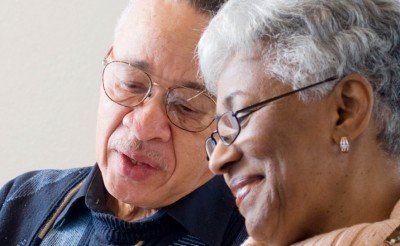
How can doctors best care for the graying population with cancer?
For decades, healthcare professionals knew very little about how to manage cancer in people over age 65. According to Memorial Sloan Kettering medical oncologist Stuart Lichtman, a longtime specialist in caring for older cancer patients, it wasn’t clear to doctors whether these patients should be treated differently in any way.
“We knew that people over age 75 were significantly more likely to have other illnesses that could interfere with their treatment and recovery, and that they tended to recover more slowly,” he explains. “But basically, we didn’t know much beyond that.”
With this older demographic growing rapidly in the United States and around the world, the need for finding the best approach to treating cancer patients of advanced age has never been more pressing. Fortunately, knowledge has greatly advanced in recent years, thanks to a rising tide of research and inquiry.
“We still have much to learn, but there’s been lots of research, lots of conversation,” says Dr. Lichtman, who was honored in early June with the 2014 B.J. Kennedy Award and Lecture for Scientific Excellence in Geriatric Oncology at the American Society of Clinical Oncology meeting in Chicago.
“In the time I have been working, geriatric oncology has become a field unto itself — and Memorial Sloan Kettering has been one of the institutions leading the way.”
We asked Dr. Lichtman about some of the broad changes and challenges he’s observed.
What are key issues that affect caring for older people with cancer?
First, there is no reason to deny older people adequate cancer therapy — surgery, chemotherapy, radiation — based on age alone. Individualization is critical; one size does not fit all! While one 80-year-old may tolerate a standard course of chemotherapy perfectly well, the next may not.
Add to that the fact that many older people have several health conditions for which they take multiple medications — the average 75-year-old is on seven a day — and the importance of personalizing care becomes even more obvious. The good news is that in 2014 there are often options available for avoiding or minimizing drug interactions. And increasingly, there are ways of treating cancer in people at varying levels of overall health and function.
Another major insight is that traditional measures of “performance status” that predict how well a person is likely to withstand the rigors of chemotherapy, surgery, and other forms of cancer treatment are not adequate for older patients. Instead, we’ve discovered that these measures, which focus on the ability to carry out daily living tasks like bathing, getting dressed, and following a medication schedule, have much greater predictive value if they are specific to the geriatric population.
Back to topHave other needs unique to older cancer patients been identified?
We’ve certainly come to appreciate that because so many older individuals live alone and may have financial limitations, it’s important to care for nonmedical needs. At Memorial Sloan Kettering, our long-established 65+ Program — supplemented in 2009 with the creation of a dedicated Geriatrics Service, headed by Beatriz Korc-Grodzicki — includes experts in medical and surgical oncology as well as geriatrics, finance, nutrition, occupational therapy, music therapy, pharmacy, physical therapy, psychiatry, social work, and palliative care.
Consultations are available to help determine what sort of aid an older patient might benefit from as he or she undergoes cancer treatment. And we perform a preoperative evaluation on patients age 75 and older to assess the risk of surgery and help prevent postoperative complications. Nothing could make more sense in the context of the aging population.
Social workers with psychological training assist with everything from emotional counseling to nutrition advice and guidance in setting up transportation for follow-up appointments. They also look for ways to ease the strain on spouses and other caregivers. All this makes a difference when it comes to older people being able to handle treatment that will truly help them overcome cancer.
Members of the Geriatric Service meet regularly to discuss what’s appropriate for each person. It’s the very definition of individualized treatment.
Back to topWhat do you see happening next in the field of geriatric oncology?
My hope is that the trend toward making older patients part of clinical trials — or sometimes even the focus of a study — will continue. For decades, these patients have been excluded for reasons ranging from fear that their bodies won’t be able to handle toxic treatments to lack of social support and ageism. Exclusion from clinical trials is one of the reasons we have so little data to make confident, evidence-based decisions for our older cancer patients.
Hopefully, as we learn more about what does and doesn’t work for these individuals, experts in the field will continue to refine and disseminate information about performance status specific to older patients. With this more targeted information, we are less likely to undertreat an older person with cancer —even when a curative therapy such as intensive chemotherapy exists.
I also anticipate that we will be learning a lot in the coming months and years, as the many geriatric oncology study groups that have formed start to generate results. Already we’ve learned an enormous amount about how to best treat older individuals with breast, colon, and lung cancer.
Back to top
